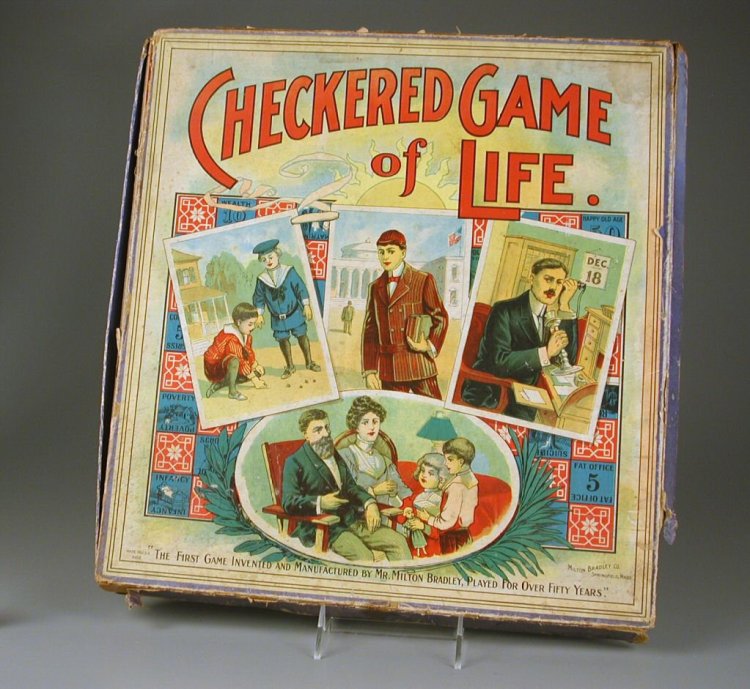Nov. 8, 1836: Milton Bradley, future business manager and board game pioneer, is born in the Kennebec County town of Vienna.

Bradley’s family moves to Lowell, Massachusetts, in 1847. He becomes a mechanical engineer and patent solicitor in Springfield, Massachusetts, then develops a board game, The Checkered Game of Life, which includes such punishments as being sent to a whipping post for failure to observe the Sabbath properly. The game continues to be sold today under the title The Game of Life, with less onerous punishments and more rewards for good behavior.
In 1875 Bradley founds the Milton Bradley Co., which manufactures board games, school materials, books and early animations. The company’s later games include Candy Land, Operation, Battleship, and Chutes and Ladders.
Nov. 8, 1966: Maine Secretary of State Kenneth M. Curtis, 35, a Democrat, defeats Gov. John H. Reed, 45, a Republican, in Maine’s gubernatorial election. It is the most recent instance in which a sitting Maine governor has run for re-election unsuccessfully.
Curtis takes office in 1967 as the nation’s youngest governor. He serves two four-year terms and later becomes U.S. ambassador to Canada. Reed also becomes a U.S. ambassador, serving in Sri Lanka.
Nov. 8, 1976: The revelation that the Furbush’s lousewort, a wild snapdragon previously thought to be extinct in Maine, is found in the northern Maine area expected to be flooded by the proposed Dickey-Lincoln hydroelectric dam project adds a crucial element to the political momentum against the project.
The dam proposal, discussed publicly since at least 1963, is never built.
Nov. 8, 2016: In a referendum, Maine voters approve personal possession and use of recreational marijuana. The “yes” side reaps 50.3 percent of the vote.
Marijuana consumption, whether for medical or recreational reasons, remains illegal but essentially unprosecuted under federal law.
Maine voters also approve a proposal to institute ranked-choice voting in all primary elections and in general election races for U.S. House and Senate seats. Maine is the first U.S. state to do so. The law is to be applied for the first time in 2018.
Ranked-choice voting, also called instant-runoff voting, is used in contests in which three or more candidates are running. If no candidate draws more than 50 percent of the votes on the first tally, votes for the candidate who received the least votes are redistributed to the totals of the voters’ second choices. The process is repeated, if necessary, until one candidate has more than 50 percent of the votes.
In 2018, the voting method produces a result different from what would have happened without the law, when Democrat Jared Golden defeats incumbent U.S. Rep. Bruce Poliquin, R-2nd District, in a four-way race.
Joseph Owen is an author, retired newspaper editor and board member of the Kennebec Historical Society. Owen’s book, “This Day in Maine,” can be ordered at islandportpress.com. To get a signed copy use promo code signedbyjoe at checkout. Joe can be contacted at: jowen@mainetoday.com.
Copy the Story LinkComments are not available on this story.
Send questions/comments to the editors.


